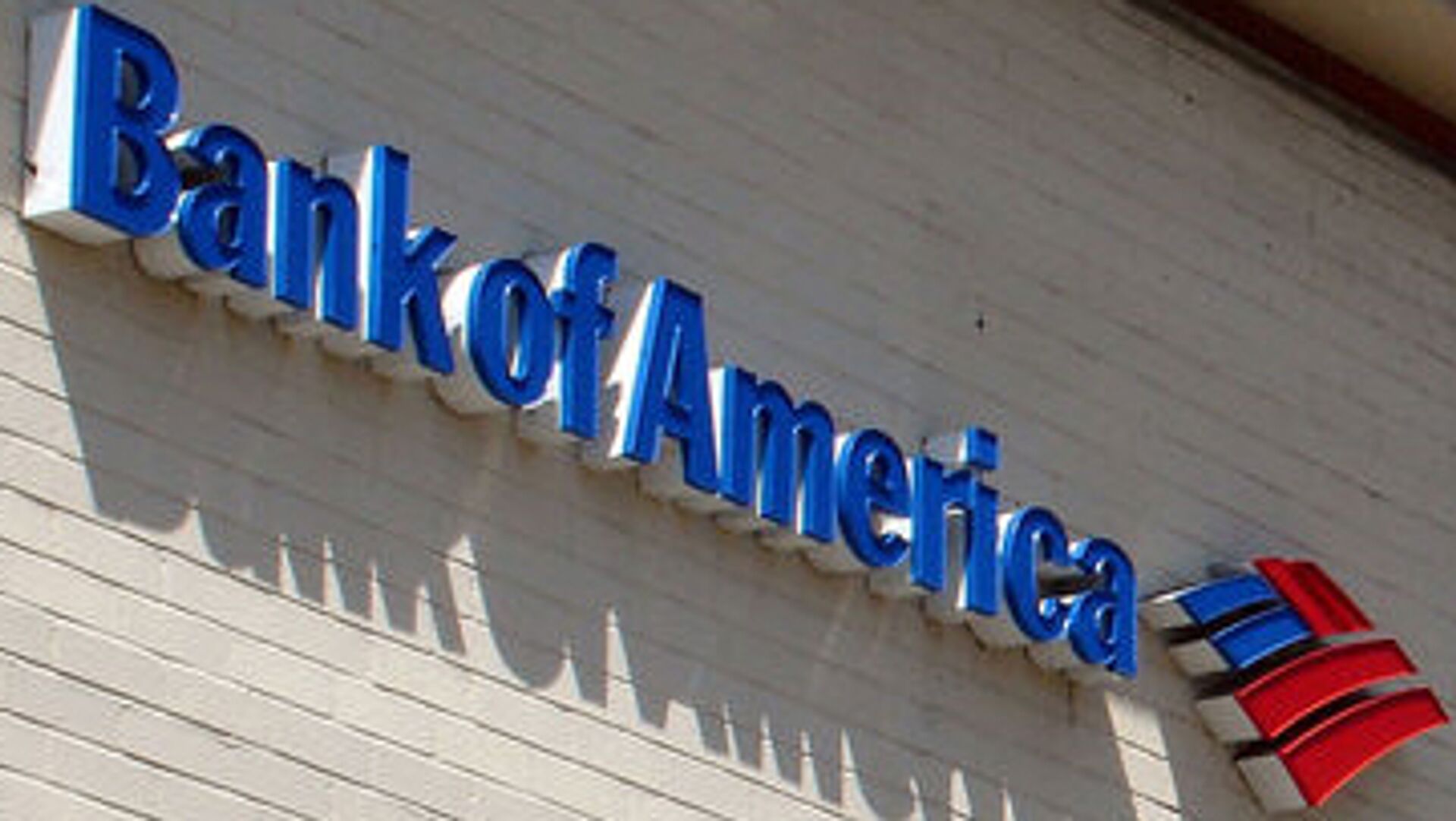‘We Hope’ More Americans Become Unemployed, Leaked Bank of America Memo Says
17:45 GMT 04.08.2022 (Updated: 18:40 GMT 19.10.2022)
Subscribe
A leaked internal memo by a senior Bank of America executive has cast new aspersions on the country’s wealthy elite, revealing the budding recession to be an instrument of class warfare.
The document, a “mid-year review” dated June 17, was written by Ethan Harris, the head of global economics research at Bank of America Securities, the corporation’s investment banking arm. According to The Intercept, which was given a copy of the document, Harris wrote down some predictions for the coming months, including that changes in the numbers of Americans looking for jobs “should help push up the unemployment rate.”
“By the end of next year, we hope the ratio of job openings to unemployed is down to the more normal highs of the last business cycle,” the memo states.
The US economy has been steadily growing for more than two years, since the crash that accompanied the first mass lockdown at the start of the COVID-19 pandemic in March 2020. Correspondingly, unemployment has reached historic lows, holding at just 3.6% in June 2022, according to the most recent report by the US Bureau of Labor Statistics (BLS). However, the costs of business have also risen, thanks to pandemic-connected delays and bottlenecks and rising oil prices, and inflation has also hit historic highs.
The Federal Reserve, the US central bank, has responded in the predictable, textbook way of increasing interest rates in an effort to stabilize the currency’s value and avoid a disastrous wage-price spiral.
Alan Blinder, a former policymaker for the Federal Reserve, told Bloomberg in June that the Fed chairman Jerome Powell “doesn’t want to let the ‘r’ word slip out of his mouth in a positive way, that we need a recession, but there are a lot of euphemisms and he’ll use them.”
Powell has instead used phrases such as a “soft or ‘soft-ish’ landing” to describe the desired effect of the Fed’s interest rate hikes, which are almost universally acknowledged to cause unemployment to rise.
While the Fed’s steady and hefty rate hikes have done almost nothing to tame inflation, the economy has nonetheless seemingly reached a “burnout” stage: the Commerce Department’s Bureau of Economic Analysis reported last week that gross domestic product had decreased by 0.9% in the second quarter of 2022, following a 1.6% decrease in the first quarter. By standard economic definitions, the US has entered a recession, even if US President Joe Biden finds it politically inconvenient to admit it.
The decline of the dollar’s purchasing power isn’t an unavoidable consequence of rising costs: an April study by the Economic Policy Institute found that corporate profits accounted for 54% of inflation over the last two years, meaning that companies increasing their prices because consumers expect price increases has made inflation caused by other issues, such as pandemic-related expenses, twice as bad as it otherwise would have been.
Indeed, when it comes to the oil giants like Chevron and ExxonMobil, the situation is obvious: with gas prices hitting historic highs, ostensibly due to rising prices caused by shipping difficulties and Russia’s special operation in Ukraine, the petroleum corporations have seen their profits more than double, or in ExxonMobil’s case, quadruple - not a phenomenon you would see if price increases were simply passing on increased business costs to the consumer out of necessity.
Bank of America’s profits have also declined over the last year, with the company reporting a 32% drop in earnings in the second quarter of 2022 compared to that quarter in 2021. However, thanks to rising interest rates, the company’s net interest income increased.
With the economy contracting and banks more reluctant to make loans due to rising interest rates, the increase in workers’ wages will soon halt as well, and employers will begin to lose customers. Hiring will stop and layoffs are likely to follow, and the leverage workers have used to win impressive gains in organizing labor unions will weaken.
Corporate bosses from Starbucks to Amazon have made clear how openly hostile they are to their workers organizing for better pay and working conditions, so any change of pace that could give them the upper hand is sure to be welcomed. Their profits, however, will stay as safe as ever.

